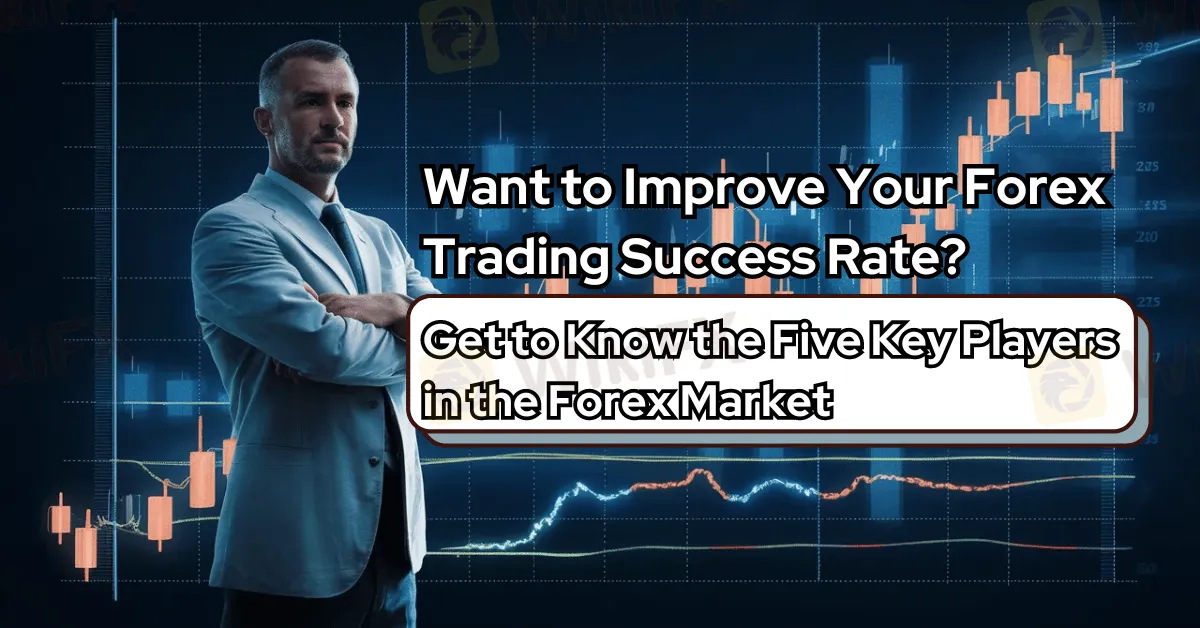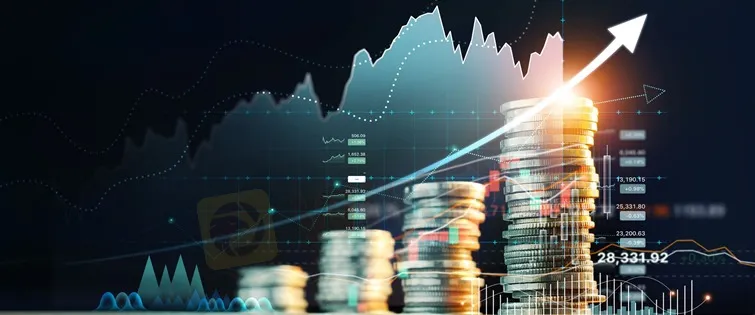简体中文
繁體中文
English
Pусский
日本語
ภาษาไทย
Tiếng Việt
Bahasa Indonesia
Español
हिन्दी
Filippiiniläinen
Français
Deutsch
Português
Türkçe
한국어
العربية
Want to Improve Your Forex Trading Success Rate? Get to Know the Five Key Players in the FX Market!
Abstract:This article delves into the primary participants of this colossal market, including importers and exporters, Forex brokers, commercial banks, central banks, and speculators. By understanding the roles of these key players, traders can better navigate the Forex landscape.

The Forex market is the most active, liquid, and largest financial trading market in the world, with daily trading volumes reaching between $6 trillion and $11 trillion. This daily volume is 27 times larger than the global stock market, 12 times that of the global futures market, and 7 times the global bond market. It surpasses the total daily trading volume of all global financial products combined, making it a colossal market unmatched by any other. Additionally, it is growing at an annual rate of 120%. As global financial integration progresses, the Forex market has replaced stocks and futures to become the mainstream financial market worldwide.

As the largest financial trading market globally, the Forex market involves financial investors from all over the world, especially from developed countries. It is also known as the most fair, just, and open market in the world.
So, who are the key players in the Forex market? Today, we will provide a detailed analysis of the five main participants in the Forex market:
1. Importers and Exporters in the Foreign Trade Industry and Other Forex Demanders and Suppliers
Importers and exporters are major demanders and providers of foreign exchange in the Forex market. They need to exchange their local currency for foreign currency to pay for imports and loans, making them demanders of Forex. Conversely, after receiving payment for exports, they exchange foreign currency back into local currency, making them providers of Forex.
However, these providers and demanders do not engage in Forex trading directly but primarily through brokers and commercial banks. Other Forex demanders unrelated to trade include tourists, students studying abroad, international remittances, transportation fees, purchases of foreign securities, and foreign debt payments.
2. Forex Brokers
Forex brokers are companies that specialize in introducing and conducting Forex transactions on behalf of clients, acting as intermediaries. They play a role similar to real estate agents in the housing market, facilitating purchases.
Some brokers directly engage in Forex trading to profit. By maintaining close contacts with Forex banks and demanders, brokers stay updated on market dynamics, facilitate successful transactions between parties, and earn commissions. Forex banks often rely on brokers for their extensive network, information, and transaction experience to find more buyers and sellers.
3. Forex Departments of Commercial Banks
The Forex departments of commercial banks are the core of the Forex market, handling most market transactions. Their main businesses include letters of credit, international remittances, foreign currency deposits, and Forex trading.
Commercial banks participate in Forex trading in two ways:
Acting as intermediaries for client Forex transactions.
Conducting Forex transactions in their own name.
The goals of commercial bank Forex departments are:
Providing comprehensive services to enhance the bank's reputation and attract customers.
Managing their own Forex positions to maintain reasonable levels of each foreign currency, avoiding exchange rate risks.
Earning profits and increasing revenue.
4. Central Banks of Various Countries
Central banks play two roles in the Forex market:
As managers intervening in the Forex market to conduct transactions and influence exchange rate fluctuations, steering the rate changes in favor of the national economy and foreign trade.
Conducting Forex transactions on behalf of the government or major domestic enterprises.
5. Forex Speculators
Forex speculators participate in Forex trading not due to actual Forex needs but to profit from small margin trading through accurate analysis of exchange rate trends and skilled operations.
The Forex market, the largest and most liquid financial trading market in the world, attracts a diverse range of participants, including importers and exporters, Forex brokers, commercial banks, central banks, and speculators. Each player contributes to the market's dynamic nature and immense trading volumes. Understanding these key participants and their roles is crucial for navigating the Forex landscape effectively. Additionally, utilizing tools like WikiFX to verify brokers and ensure trading safety can protect investors from fraud and enhance their trading success. As the Forex market continues to grow and evolve, staying informed and vigilant remains paramount for all traders.

Disclaimer:
The views in this article only represent the author's personal views, and do not constitute investment advice on this platform. This platform does not guarantee the accuracy, completeness and timeliness of the information in the article, and will not be liable for any loss caused by the use of or reliance on the information in the article.
Read more

The Hidden Checklist: Five Unconventional Steps to Vet Your Broker
Forex broker scams continue to evolve, employing new tactics to appear credible and mislead unsuspecting traders. Identifying these fraudulent schemes requires vigilance and strategies beyond the usual advice. Here are five effective methods to help traders assess the legitimacy of a forex broker and avoid potential pitfalls.

Doo Financial Obtains Licenses in BVI and Cayman Islands
Doo Financial, a subsidiary of Singapore-based Doo Group, has expanded its regulatory footprint by securing new offshore licenses from the British Virgin Islands Financial Services Commission (BVI FSC) and the Cayman Islands Monetary Authority (CIMA).

CFI’s New Initiative Aims to Promote Transparency in Trading
A new programme has been launched by CFI to address the growing need for transparency and awareness in online trading. Named “Trading Transparency+: Empowering Awareness and Clarity in Trading,” the initiative seeks to combat misinformation and equip individuals with resources to evaluate whether trading aligns with their financial goals and circumstances.

Malaysian-Thai Fraud Syndicate Dismantled, Millions in Losses Reported
The Royal Malaysia Police (PDRM) has received 26 reports concerning the Nicshare and CommonApps investment schemes, both linked to a major fraudulent syndicate led by a Malaysian citizen. The syndicate’s activities came to light following the arrest of its leader by Thai authorities on 16 December.
WikiFX Broker
Latest News
ASIC Sues Binance Australia Derivatives for Misclassifying Retail Clients
Top 10 Trading Indicators Every Forex Trader Should Know
WikiFX Review: Is FxPro Reliable?
Malaysian-Thai Fraud Syndicate Dismantled, Millions in Losses Reported
Trading frauds topped the list of scams in India- Report Reveals
AIMS Broker Review
The Hidden Checklist: Five Unconventional Steps to Vet Your Broker
YAMARKETS' Jingle Bells Christmas Offer!
WikiFX Review: Something You Need to Know About Markets4you
Revolut Leads UK Neobanks in the Digital Banking Revolution
Currency Calculator


